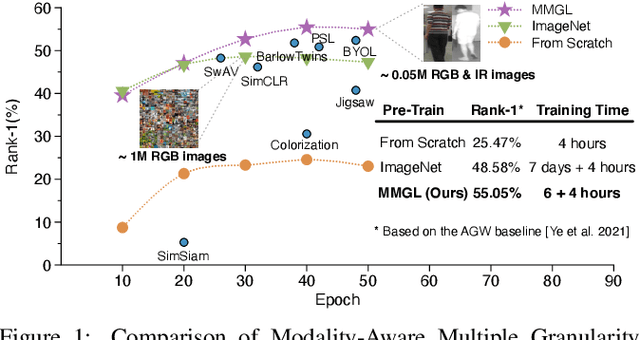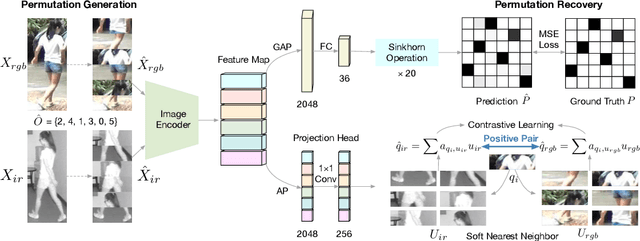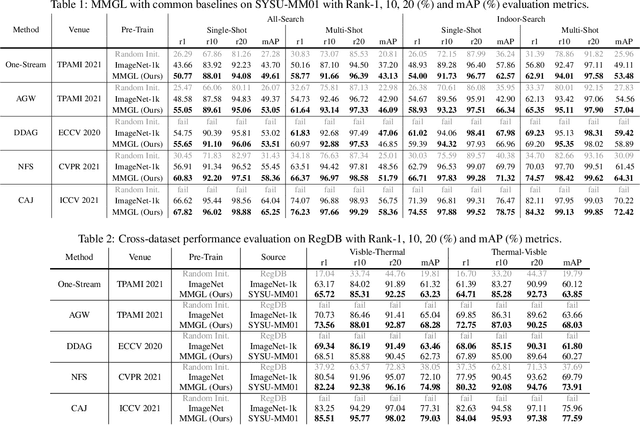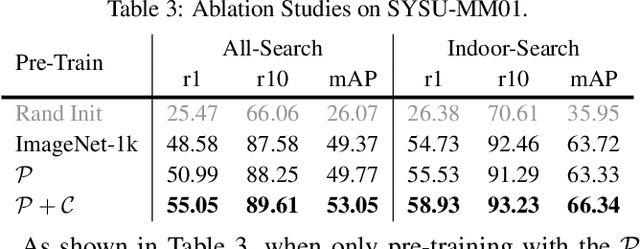Self-Supervised Modality-Aware Multiple Granularity Pre-Training for RGB-Infrared Person Re-Identification
Paper and Code
Dec 12, 2021



While RGB-Infrared cross-modality person re-identification (RGB-IR ReID) has enabled great progress in 24-hour intelligent surveillance, state-of-the-arts still heavily rely on fine-tuning ImageNet pre-trained networks. Due to the single-modality nature, such large-scale pre-training may yield RGB-biased representations that hinder the performance of cross-modality image retrieval. This paper presents a self-supervised pre-training alternative, named Modality-Aware Multiple Granularity Learning (MMGL), which directly trains models from scratch on multi-modality ReID datasets, but achieving competitive results without external data and sophisticated tuning tricks. Specifically, MMGL globally maps shuffled RGB-IR images into a shared latent permutation space and further improves local discriminability by maximizing agreement between cycle-consistent RGB-IR image patches. Experiments demonstrate that MMGL learns better representations (+6.47% Rank-1) with faster training speed (converge in few hours) and solider data efficiency (<5% data size) than ImageNet pre-training. The results also suggest it generalizes well to various existing models, losses and has promising transferability across datasets. The code will be released.
 Add to Chrome
Add to Chrome Add to Firefox
Add to Firefox Add to Edge
Add to Edge